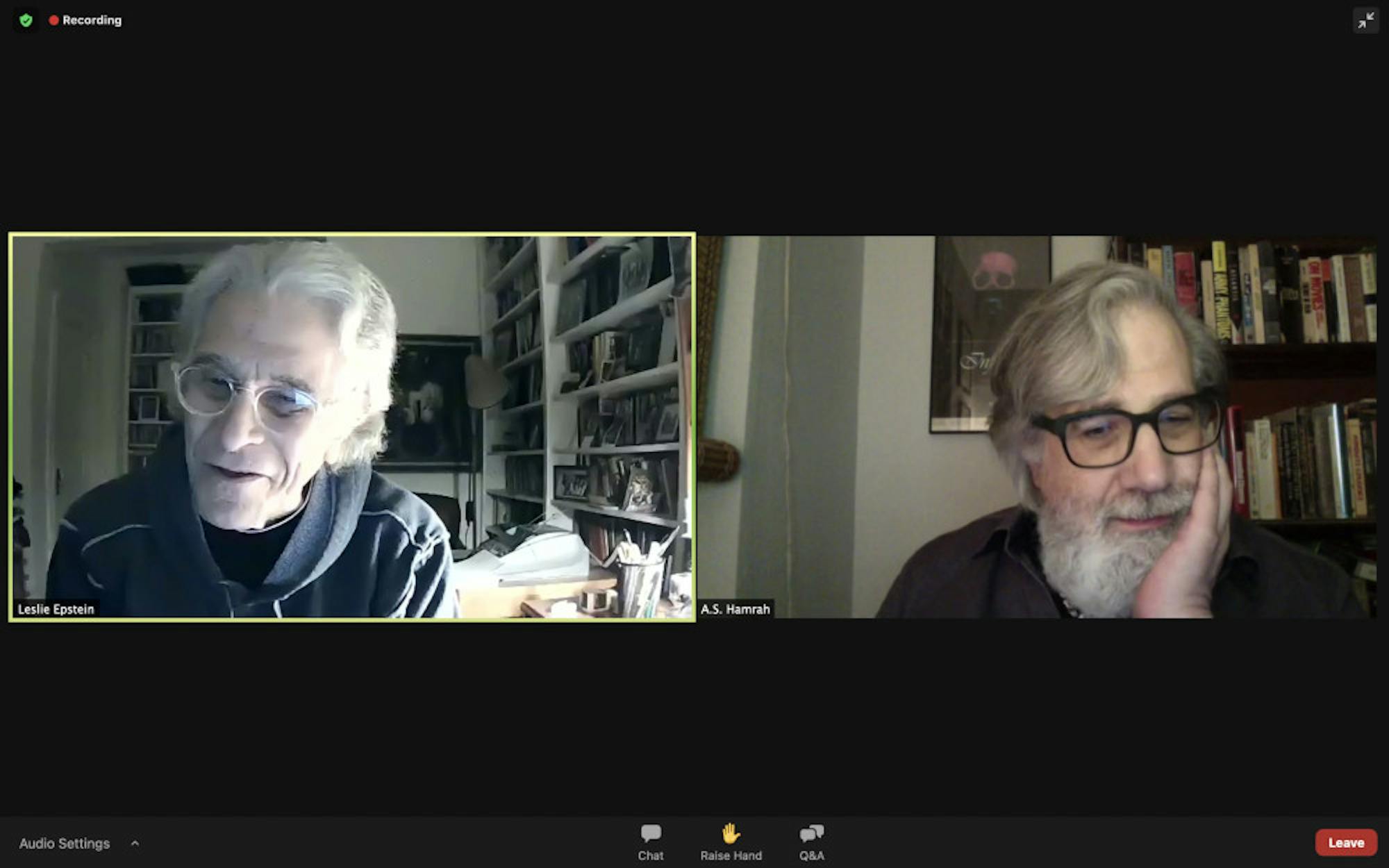Content warning: This article mentions the Holocaust, anti-Semitism and Nazism.
Brookline Booksmith held an event with author and Boston University Creative Writing Director Leslie Epstein and author and film criticA.S. Hamrah on Mar. 1. The writers discussed Epstein's new book, “Hill of Beans: A Novel of War and Celluloid” (2021). The novel details the lives of Epstein’s uncle Julius ("Julie") Epstein and father Philip Epstein, who were screenwriters for the iconic “Casablanca” (1942). Significant historical figures appear in the new book, including Joseph Stalin, Franklin D. Roosevelt and Joseph Goebbels (Nazi politician and Reich minister of propaganda). Most prominent, however, is the fictionalized retelling of the development of “Casablanca” and the voice of Jack Warner, the complex head of Warner Bros.
Epstein began with the history of his father and uncle.
Julie came to Hollywood first. He used to write a treatment a night, sharing them with Penn State buddy Jerry Wald, who didn’t give him credit until “Living on Velvet” (1935). Famously, “What Makes Sammy Run?” (1941),a book and then later a musical, chronicles how protagonist Sammy Glick used character Julian Blumberg as a ghost writer. Aptly, Julian was based on Julie.
Philip started his career as a screenwriter at RKO Pictures and wrote 16 scenes of “The Big Sleep”(1946). By the time the brothers joined forces, Julie had already been nominated for the Academy Award for Best Writing (Screenplay) for “Four Daughters” (1938).
Together, the brothers enjoyed major success. To frame their success, Epstein described “Casablanca” as starting off as a simple contract job for Julie and Philip. In fact, their writing for the incredibly successful film was interrupted by a different project — the “Why We Fight”(1942-1945) series: seven documentaries explaining the United States’ efforts in World War II.
Sadly, Philip died young, when Leslie was only 13 years old. Julie continued his prosperous career in film.
At the event, Hamrah praised Epstein for “juggling a lot of balls with such dexterity,” referencing his witty style. He easily combines tropes of 1940s Hollywood to craft enthralling historical fiction rife with stories from the Epstein brothers’ careers.
Next, Epstein described the star of his novel, Jack Warner, as a “courageous fool.” Leslie constructed his father’s and uncle’s role as a “witty and … wise Greek Chorus” that “[saw] through” Warner’s antics. Epstein admits that many of the scenes in the novel where the brothers mock Warner were real accounts of past events. Their constant criticism was justified. Like his relatives, Epstein’s attitude toward Warner while writing was initially “hatred,” and he condemned Warner for his moral failings.
“Jack [Warner] himself … was a terrible man in many ways,” Epstein said. “Racist, misogynist, supercilious, arrogant. But the more I read about him and the more he took over my voice … the more I came to a kind of grudging acknowledgement of a kind of greatness.”
When Hitler became chancellor in 1933, Goebbels ordered all Hollywood studios to fire their Jewish employees working in Berlin offices. Every studio head complied, except Warner.
Warner didn't like the idea of closing off to the German market, which was, according to Epstein, the second largest in Europe at the time. Still, he closed the Berlin offices in 1934 instead of firing his Jewish employees. He also made “Confessions of a Nazi Spy” (1939), the first anti-Nazi film by a major Hollywood studio. There were attempts to disrupt the movie’s production, such as a cut sandbag that almost killed star Edward G. Robinson on set, and Warner received bomb threats. Goebbels outlawed its viewing in Nazi-controlled areas. A theatre owner was hung because he showed the film in Warsaw.
Radical in opposing Nazism and anti-Semitism, yet vile in other basic human attributes, was Warner a venerable character? Epstein did not condone Warner's personality traits but described him as “a human being and therefore complex with many sides.”
“Warner … [was not] portrayed as a heroic figure in the book … not at all,” Hamrah said. "[The book] is not a glowing portrait of Jack Warner."
“Hill of Beans” is a provocative read about the complexity of Hollywood. It has been available since Mar. 1 and can be purchased at Brookline Booksmith andmostplaces where books are sold.






